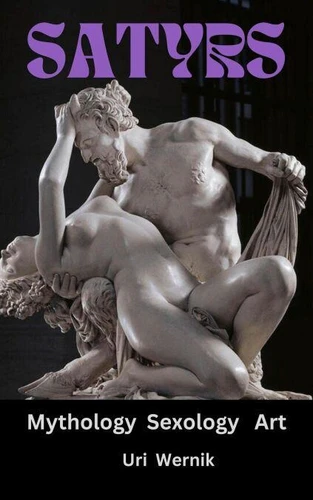Satyrs
Par :Formats :
Disponible dans votre compte client Decitre ou Furet du Nord dès validation de votre commande. Le format ePub est :
- Compatible avec une lecture sur My Vivlio (smartphone, tablette, ordinateur)
- Compatible avec une lecture sur liseuses Vivlio
- Pour les liseuses autres que Vivlio, vous devez utiliser le logiciel Adobe Digital Edition. Non compatible avec la lecture sur les liseuses Kindle, Remarkable et Sony
 , qui est-ce ?
, qui est-ce ?Notre partenaire de plateforme de lecture numérique où vous retrouverez l'ensemble de vos ebooks gratuitement
Pour en savoir plus sur nos ebooks, consultez notre aide en ligne ici
- FormatePub
- ISBN8230687993
- EAN9798230687993
- Date de parution05/02/2025
- Protection num.pas de protection
- Infos supplémentairesepub
- ÉditeurIndependently Published
Résumé
What they might have said if they were here Wernik's Satyrs is written in the Greek spirit which rejoices in life and finds the world beautiful. The reader repeatedly discovers unexpected connections, between the sexual habits of herdsmen and zoophilia, hermaphrodites, and futanari. Edith Hamilton (1867-1963), the author of Mythology and Timeless Tales of Gods and Heroes. This book should not have been written, published, or read.
The author does not understand psychopathology. He does not distinguish between morally right and wrong, and between the normal and the perverse. Satyrs are not relevant to our life. Richard von Krafft-Ebing (1840 - 1902) author of Psychopathia Sexualis. Dancing is the loftiest, the most moving, the most beautiful of the arts, because it is no mere translation or abstraction from life; it is life itself. This book is about dancing (and drinking, and frolicking) Satyrs.
The words and the paintings on the pages dance. The horizons are wide, incorporating mythology, sexology, and art. The author is a progressive and original thinker. Havelock Ellis (1859-1939), author of The Psychology of Sex.
The author does not understand psychopathology. He does not distinguish between morally right and wrong, and between the normal and the perverse. Satyrs are not relevant to our life. Richard von Krafft-Ebing (1840 - 1902) author of Psychopathia Sexualis. Dancing is the loftiest, the most moving, the most beautiful of the arts, because it is no mere translation or abstraction from life; it is life itself. This book is about dancing (and drinking, and frolicking) Satyrs.
The words and the paintings on the pages dance. The horizons are wide, incorporating mythology, sexology, and art. The author is a progressive and original thinker. Havelock Ellis (1859-1939), author of The Psychology of Sex.
What they might have said if they were here Wernik's Satyrs is written in the Greek spirit which rejoices in life and finds the world beautiful. The reader repeatedly discovers unexpected connections, between the sexual habits of herdsmen and zoophilia, hermaphrodites, and futanari. Edith Hamilton (1867-1963), the author of Mythology and Timeless Tales of Gods and Heroes. This book should not have been written, published, or read.
The author does not understand psychopathology. He does not distinguish between morally right and wrong, and between the normal and the perverse. Satyrs are not relevant to our life. Richard von Krafft-Ebing (1840 - 1902) author of Psychopathia Sexualis. Dancing is the loftiest, the most moving, the most beautiful of the arts, because it is no mere translation or abstraction from life; it is life itself. This book is about dancing (and drinking, and frolicking) Satyrs.
The words and the paintings on the pages dance. The horizons are wide, incorporating mythology, sexology, and art. The author is a progressive and original thinker. Havelock Ellis (1859-1939), author of The Psychology of Sex.
The author does not understand psychopathology. He does not distinguish between morally right and wrong, and between the normal and the perverse. Satyrs are not relevant to our life. Richard von Krafft-Ebing (1840 - 1902) author of Psychopathia Sexualis. Dancing is the loftiest, the most moving, the most beautiful of the arts, because it is no mere translation or abstraction from life; it is life itself. This book is about dancing (and drinking, and frolicking) Satyrs.
The words and the paintings on the pages dance. The horizons are wide, incorporating mythology, sexology, and art. The author is a progressive and original thinker. Havelock Ellis (1859-1939), author of The Psychology of Sex.





